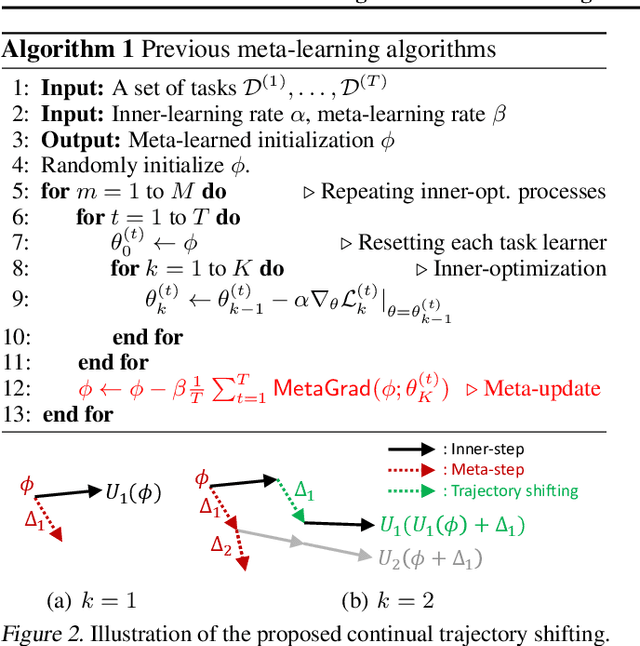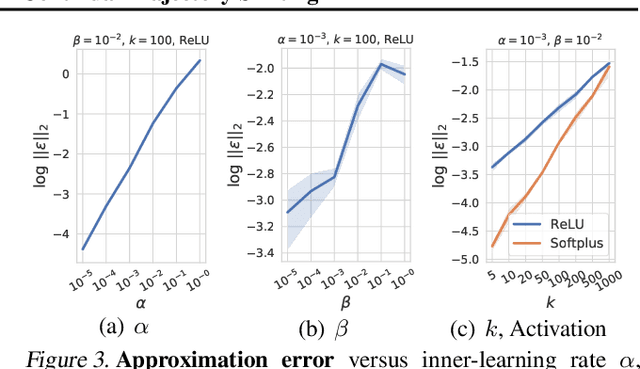Large-Scale Meta-Learning with Continual Trajectory Shifting
Paper and Code
Feb 14, 2021



Meta-learning of shared initialization parameters has shown to be highly effective in solving few-shot learning tasks. However, extending the framework to many-shot scenarios, which may further enhance its practicality, has been relatively overlooked due to the technical difficulties of meta-learning over long chains of inner-gradient steps. In this paper, we first show that allowing the meta-learners to take a larger number of inner gradient steps better captures the structure of heterogeneous and large-scale task distributions, thus results in obtaining better initialization points. Further, in order to increase the frequency of meta-updates even with the excessively long inner-optimization trajectories, we propose to estimate the required shift of the task-specific parameters with respect to the change of the initialization parameters. By doing so, we can arbitrarily increase the frequency of meta-updates and thus greatly improve the meta-level convergence as well as the quality of the learned initializations. We validate our method on a heterogeneous set of large-scale tasks and show that the algorithm largely outperforms the previous first-order meta-learning methods in terms of both generalization performance and convergence, as well as multi-task learning and fine-tuning baselines.
 Add to Chrome
Add to Chrome Add to Firefox
Add to Firefox Add to Edge
Add to Edge